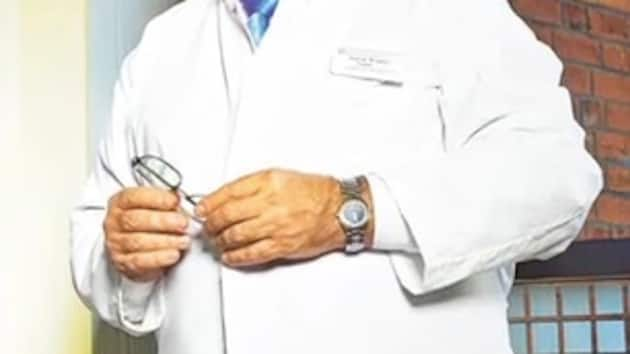In 2015, Joe Biden’s son Beau died of a brain tumor. With his billion-dollar program against cancer, the US President could soon save the lives of German tumor patients.
Cancer forecasts predict a worrying development: worldwide, the number of new cancer cases will double in the next 20 years; According to the federal government, in Germany it will increase by 20 percent by the end of the decade. The second leading cause of death in our society is spreading.
The “Cancer Moonshot” proclaimed by US President Joe Biden fuels hopes of curbing this spread. In a nod to the ambitious moon program of the 1960s, the similarly ambitious Cancer Moonshot aims to reduce cancer deaths by at least 50 percent within 25 years.
The White House is providing $1.5 billion for the project. It is intended to network researchers and sponsors, pool existing anti-cancer projects and provide funds for projects. People in Germany benefit from Biden’s moonshot in three ways:
Biden’s moonshot aims to prevent cancer deaths by providing better patient care, preventing preventable tumors through education and early detection, and fueling research. German companies also use the last point.
The Leverkusen pharmaceutical company Bayer has invested 140 million dollars in a research center near Boston, where 100 researchers are to develop drugs against cancer. In addition, Bayer bought US companies that research cancer therapies for billions of dollars.
“Germany lacks the ecosystem that we find in the United States,” Bayer CEO Werner Baumann told Handelsblatt. There are bright minds here, too, but there is a lack of financiers and other young companies in the same business field. Because Biden’s Cancer Moonshot also reduces bureaucracy for cancer researchers, the USA is currently the better research location. German companies also use this advantage.
Driven by the example set by the USA, the research situation in Germany is also improving. Research Minister Bettina Stark-Watzinger (FDP) called on pharmaceutical companies to launch a “grand challenge” against cancer on the occasion of World Cancer Day on Saturday, February 4th. She wants to expand four research centers, provide money and strengthen research associations. Almost simultaneously, the EU presented “Europe’s plan against cancer” with measures similar to Biden’s moonshot.
The good news for Germany: the Federal Republic and the EU are learning from the successes of the USA and are following suit. That should drive cancer research in this country.
Cancer research devours a lot of money, but does not necessarily bring profits: If the treatment fails before it is ready for the market, only losses remain. There are significantly more investors in the USA who nevertheless invest in high-risk pharmaceutical projects. Some provide expertise and highly qualified employees. An enormous advantage for research projects in the early phase.
“Cancer is one of the greatest challenges of our time. The United States is going ahead to defeat them,” Julie Grant of California venture capitalist Canaan told Handelsblatt. While state structures dominated cancer research in Europe, in the USA mostly investors provided the money and demanded measurable successes in return. That also encourages research.
US financiers are also looking around in this country. Grant says the Federal Republic offers well-managed, young companies with good talent. She will soon be flying to Frankfurt to visit some investment destinations. She hasn’t named names yet.
The good news for Germany: Thanks to US lenders, German pharmaceutical companies find financing more easily and are therefore more likely to bring their products to market.
By promoting research into rare cancers, Biden’s moonshot could save the lives of many children. So far, pharmaceutical companies have ended even promising research into tumors in the youngest because children make up only one percent of all cancer patients, says Sam Blackman from the San Francisco start-up Day One Biopharmaceuticals the Handelsblatt. High risk, low reward – not worth it.
Blackman, a former pediatrician, buys and carries on this research with Day One. Biden’s Moonshot co-finances the business model and provides financiers through networking. Julian Grant and Canaan have already invested.
Day One recently presented a drug that prevented tumors from growing in nine out of ten children. Half of them shrank, some disappeared. This research could also save the lives of young patients in Germany.
It is quite possible that the drugs will then even be manufactured by German companies. Day One cannot handle the international marketing itself. German pharmaceutical companies offer themselves as partners – and probably have good chances because, according to Blackman, Germany helped develop the treatment: “Without the cancer specialists Olaf Witt and Cornelis van Tilburg from the German Cancer Research Center in Heidelberg, we would not be where we are today .”
The good news for Germany: Children suffering from cancer in Germany, for whom their tumor is currently a death sentence, could soon survive with the help of drugs that were co-developed and manufactured in Germany.








